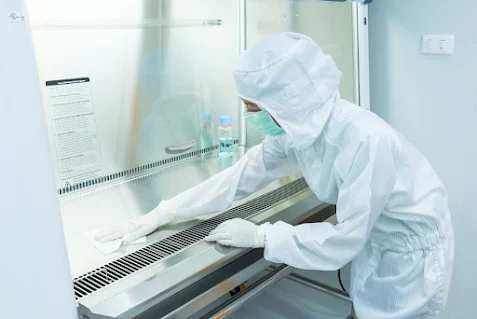Biosafety Cabinet (BSC) is a laboratory-controlled lab-engineered enclosure that protects samples, lab workers, and the laboratory environment against exposure and biohazards, splashes, and aerosols. The chances of material splashes and aerosols arise from material handling and manipulation of highly communicable agents. It is necessary to periodically check the efficiency of safety cabinets to verify the airflow, HEPA integrity, and how well the instrument is being able to protect the sample stored inside the chamber. All these factors depend on the cabinet in use.
The Biological safety cabinet comes in three classes. Class I cabinets, Class II cabinets, and Class III cabinets. Let's go through a quick review of what each entails.
Class I cabinet
This is a simple cabinet that provides personnel and environmental safety. However, in this type of cabinet, the product is subject to contamination. The airflow suctioned inside the cabinet is discharged through the HEPA filters.
Class II cabinet
This ventilated cabinet provides both personnel, environmental, and product safety. Found in research and clinical labs this is ideal for labs that deal with infectious agents. This cabinet is further divided into four three risk groups. A1, A2, B1, B2 are the different types of class II cabinets that are differentiated by the ratio of their exhaust and air recirculation.
Class III Cabinets
This cabinet provides the highest level of safety and is used extensively for protecting the most transmissible agents. These cabinets are used in Level 3 and 4 laboratories. These are completely enclosed cabinets that are leak proof, with HEPA filtered air. The operator's access is provided using glove boxes that enable work in the enclosed workspace. Dedicated exhaust system exterior maintains an interior negative pressure.
Conclusion
Providing the most technologically advanced Biosafety Cabinet
iGenge labserve brings the most advanced laboratory equipment that
increases lab experiment success and opens scope to major and delicate
investigations in the field of bioscience. To explore our product
brochure visit https://www.igenels.com/





No comments:
Post a Comment